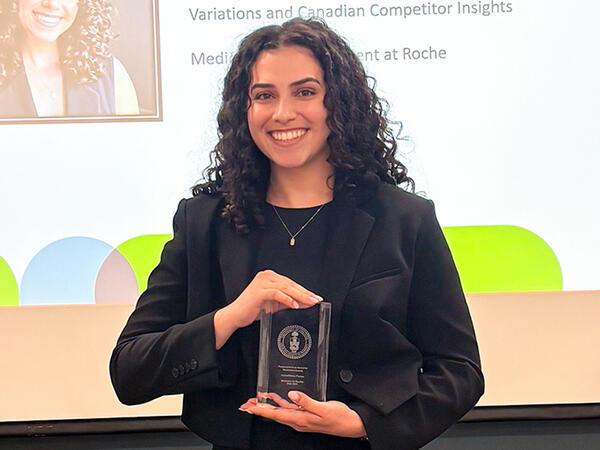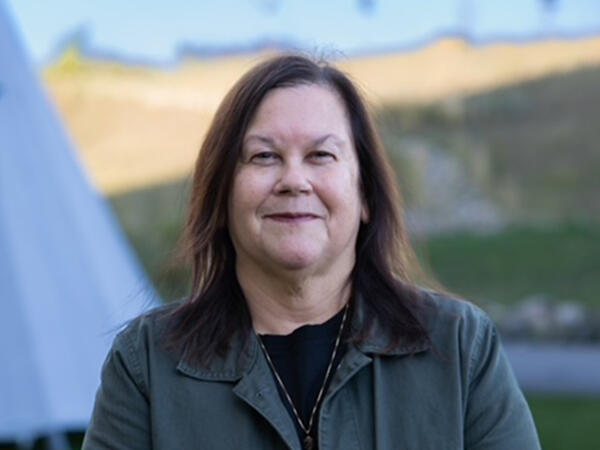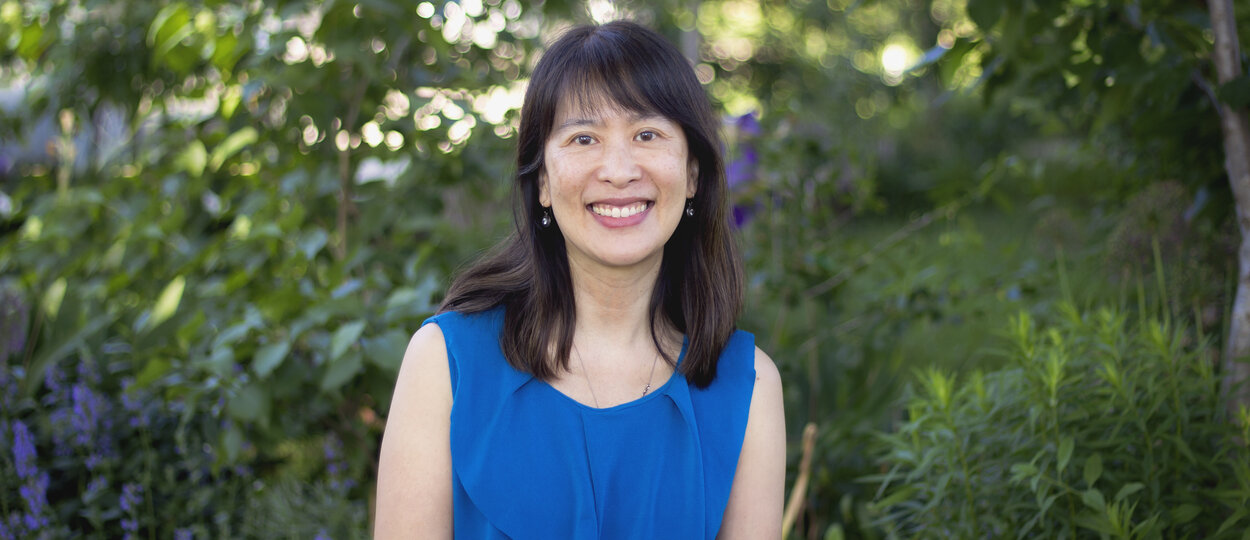HIV pharmacist Alice Tseng has received the Leslie Dan Faculty of Pharmacy’s inaugural Hall of Distinction award, recognizing her contributions to the pharmacy profession. Tseng has helped to improve knowledge sharing and collaboration in the field by co-founding a national and provincial HIV pharmacists’ network, helping to establish a specialized residency in HIV, and co-developing an interactive drug information website and mobile app.
Tseng earned both her Bachelor of Science in Pharmacy and PharmD from the Leslie Dan Faculty of Pharmacy in the early 1990s. She is currently the HIV pharmacotherapy specialist at University Health Network’s Immunodeficiency Clinic and Associate Professor (Status) at the Faculty.
HIV treatment has changed significantly since Tseng’s early days in the field. At the time, there were only a handful of HIV drugs available, and they were only available through hospital pharmacies. But the field changed significantly with the development of antiretroviral drugs called protease inhibitors and combination therapy that required patients to take 20 to 30 pills a day. “There were so many drug interactions and adherence issues that physicians really realized at that point how important pharmacists were in helping them manage regimens with a patient,” Tseng says.
Combination therapy is still the standard treatment but is now much simpler, requiring far fewer pills each day, and preventive medications are now available. Yet challenges with drug interactions remain. As more people with HIV are getting older and experiencing the usual conditions that occur with age, such as diabetes and heart disease, there is a greater risk of drug interactions with their HIV medications. “Even though the HIV medications themselves have become much better and much simpler, all the other factors around them can be pretty complicated,” she says.
Tseng builds collaborations within pharmacy and community
To help pharmacists identify these drug interactions and provide better care for their patients, Tseng co-developed, with her colleagues Michelle Foisy and Pierre Giguere, an interactive website and app with drug information. The app allows pharmacists to find general information about HIV and hepatitis C drugs and search for possible interactions, all in one place. The website and app now have more than 7000 unique visitors every month, and she works with pharmacists from across the country to ensure the content is accurate and up-to-date.
Tseng values this type of collaboration and information sharing with colleagues, especially in a complex, but small, specialty. She co-founded, also with Foisy, both the Ontario HIV Pharmacists Professional Specialty Group and the Canadian HIV and Viral Hepatitis Pharmacist Network more than 20 years ago and has been actively involved in both groups throughout her career. “With HIV, there may be one pharmacist per hospital or per city, so you’re more isolated,” she says. “It’s been really valuable to have a network for both experienced practitioners and new clinicians in the area. There’s so much information sharing and support.”
“When someone goes from being your student to being your colleague, honestly, that’s the best”
Of Tseng’s achievements, she is particularly proud of the students she has trained. She and Foisy established an advanced residency program for pharmacists interested in HIV practice, the first and only residency of its kind in Canada. The one-year program, now run jointly with Nancy Sheehan at McGill University Health Centre, trains residents in a variety of HIV settings, including hospital, ambulatory care, geriatrics and research. “When someone goes from being your student to being your colleague, honestly, that’s the best,” she says.
Tseng values the collaborations she has built, both between health care professionals and with the HIV community. She adds that one of the highlights of her career was serving on the Board of Directors of the AIDS Committee of Toronto. “I gained a lot of insight and appreciation from participating in the Committee. The two-way respect and recognition was really valuable,” she says. “Having these longstanding relationships and seeing a lot of patients through so many changes in so much of their lives has been really meaningful.”
By Eileen Hoftyzer
More News
Image

Research team aims to co-design diabetes and dementia support programs that meet community needs
Network for Health Populations funding will support collaborative project to improve health outcomes for immigrant communities in Mississauga.
Read More
Image

Pharmaceutical industry resident finds growth in new challenges
Pharmaceutical Industry Residency Program Award recipient AnnaMaria Passas gained new skills through residency and research project to improve marketability in industry.
Read More
Image

Pharmacy alum sees change in acceptance of Indigenous cultures in health care
During Deborah Emery’s 40-year pharmacy career, she provided care in Sioux Lookout, Thunder Bay and Manitoulin Island.
Read More
